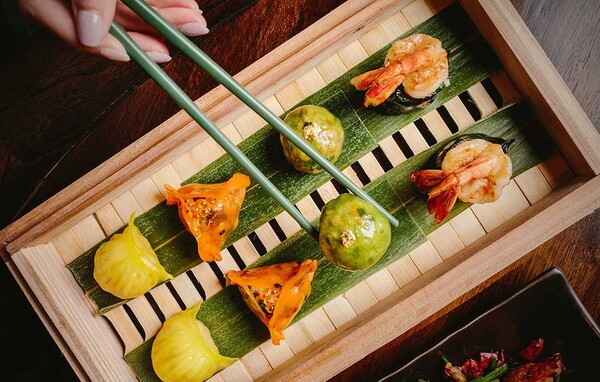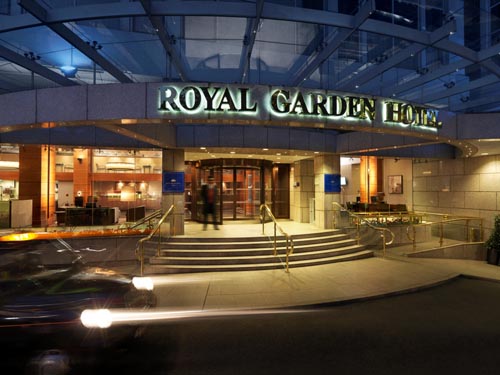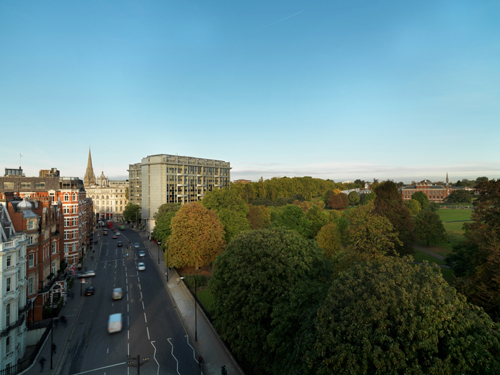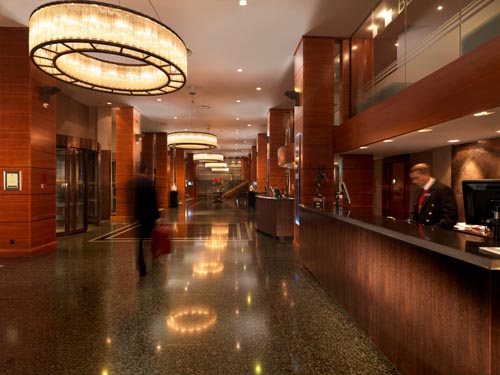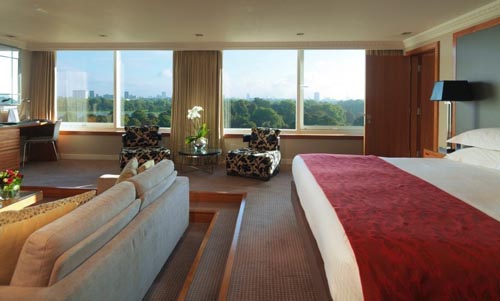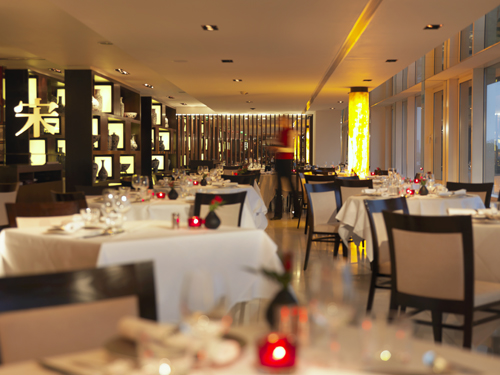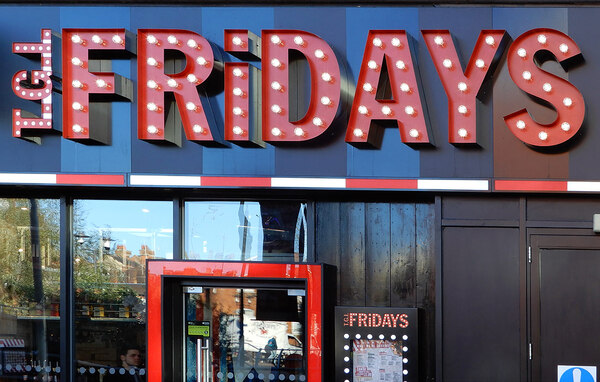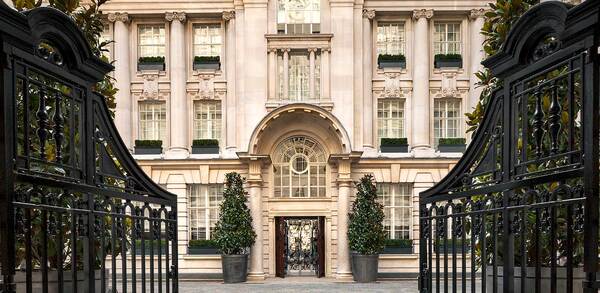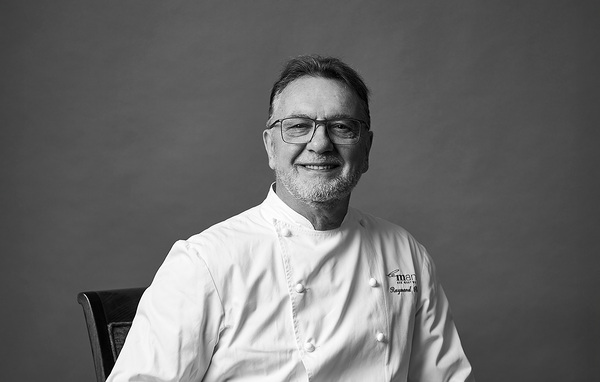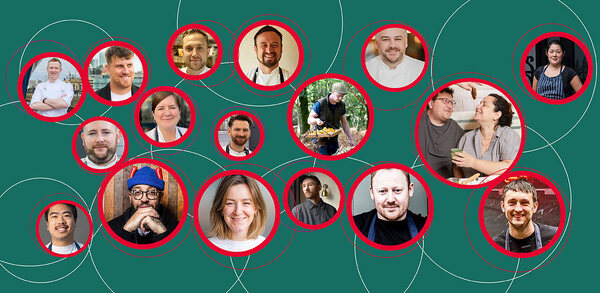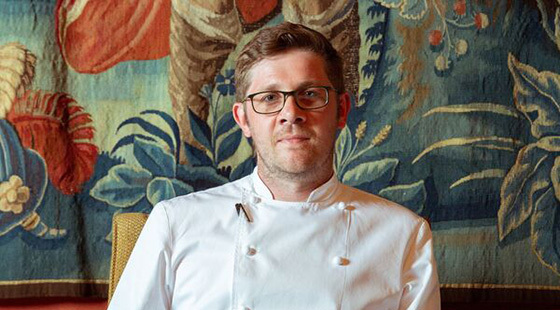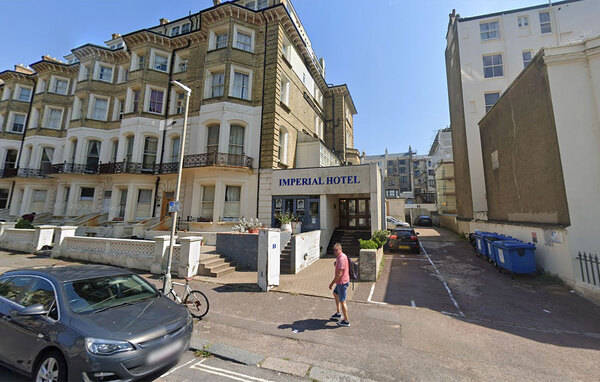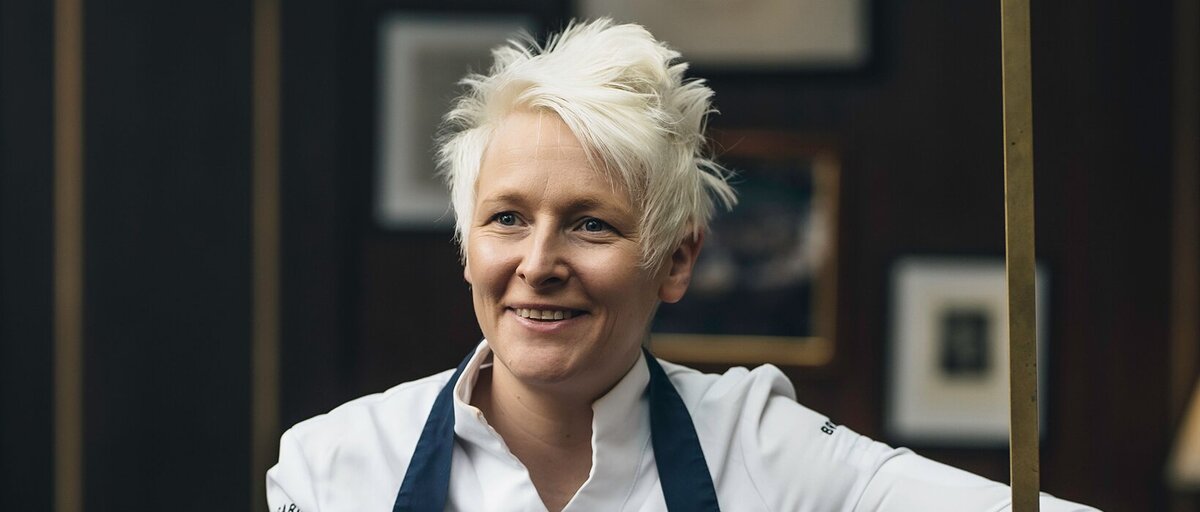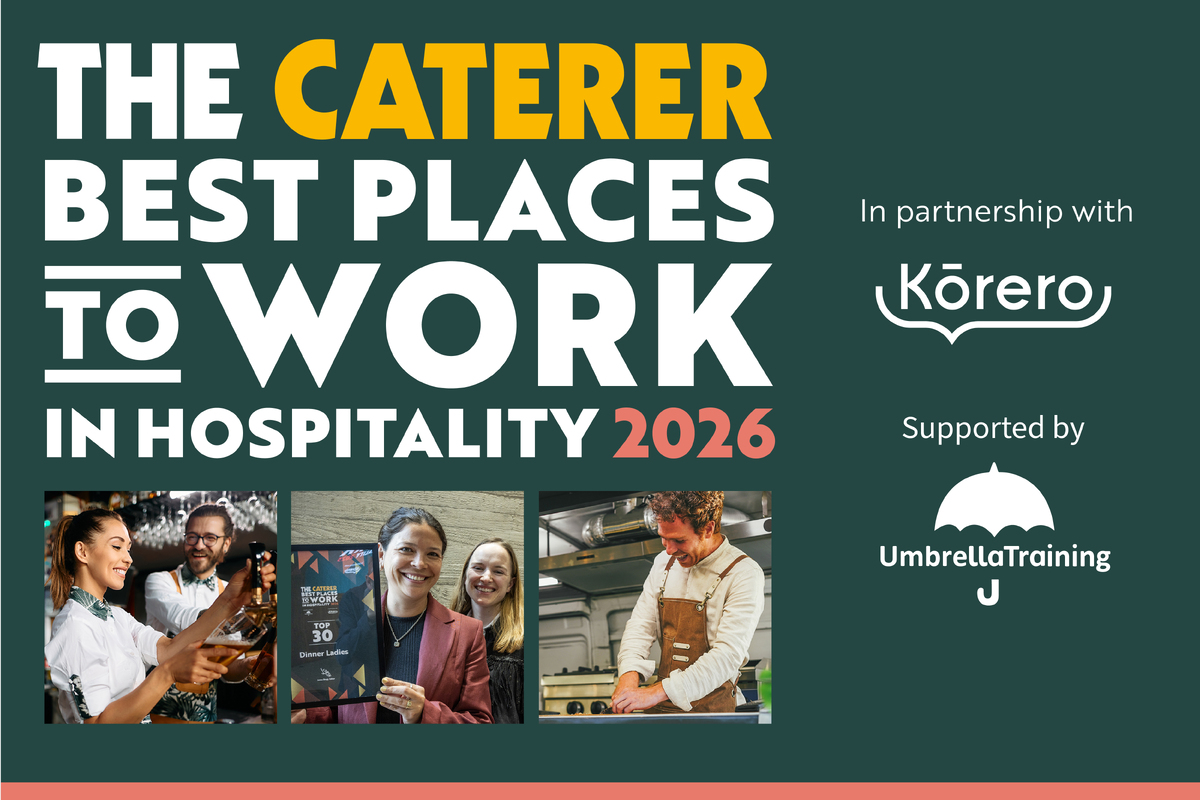The Royal Garden at 50: Long-serving staff and happy celebrities
Rosalind Mullen investigates in the hotelâs 50th year
Within minutes of arriving in the lobby at Londonâs Royal Garden Hotel in Kensington, acting marketing manager Alex Trebucq stops to say hello and check Iâm being looked after. It turns out he is also a member of the tycoon family that owns the property. Itâs that unstuffy friendliness that sums up this five-star hotel and explains why it has close to 40% repeat guests.
Indeed, building loyalty seems to be what the Royal Garden is all about. At 50 years old this year, the hotel has become a discreet haven for a regular stream of famous visitors as diverse as Michael Jackson, President Putin and the England rugby team.
But whatâs even more impressive in an industry beleaguered by skills shortages is that nearly half of its 354 staff have served for more than five years and some 25% for more than 10.
According to general manager Jonathan Lowrey, staff loyalty is down to the culture created by its owners, the family-owned Goodwood Group of hotels. And having notched up 20 years at the hotel, he should know. He started as food and beverage manager, moved up to deputy general manager for 12 years and became general manager 18 months ago.
The hotel opened in 1965 under the Oddeninos Hotels banner before being taken over by Rank Organisation. In 1996 it was bought by Tan Sri Khoo Teck Puat, chairman of the Goodwood Group, which operates two hotels in Singapore. When he passed away in 2003, his eldest daughter, Mavis Oei, stepped in. She is based in Singapore, and visits two or three times a year. Her sister, Jennifer Carmichael, is more hands-on, but recently gave up her office in the hotel to move to Monaco.
âIt feels good to be in charge,â says Lowrey. âBut the owners are not remote. They are very interested in how we run and operate.â
Close quarters
One example of this is the adjacent staff hostel for 120 people. Many hotel companies would have made commercial use of such valuable real estate, but not Goodwood.
âOur owners donât sell property. There have been suggestions that the staff hostel could be used more profitably, but that was turned down by the board,â says Lowrey.
âIt has huge benefits. It builds a team of people who have an extra bond. They play together, party together. Receptionists, chefs, housekeepers get to understand each other. It creates unity at work.â
And he believes this is central to the extraordinary staff-retention record. âIt may sound smug, but we donât have much of a skills shortage â" except with chefs. It comes back to having 100 bedrooms next door for young internationals arriving for work. We have a strong, stable team of employees who take advantage of these economies to find their feet.â
There is also a regular calendar of social events, with parties, quiz nights, treasure hunts, a softball team, participation in the industry football competition and so on. And the owning family also push through a high standard of employee welfare, focusing on individual needs, reasonable shifts, time off in lieu of overtime and so on.
âMrs Carmichael puts a lot of energy into the hotel and employees. She creates a family culture to make the work-life balance stronger. It creates a secure environment in which to work â" for the long term,â says Lowrey.
Staff are also fairly paid, he says. âThe introduction of the National Living Wage will have minimum impact on us because of our salary scales. I believe we should pay employees a good living wage.â
And those who do stay are rewarded. The 47% of staff who have served for five years receive an extra dayâs holiday every year; after 10 there is a cash reward and invitation to stay overnight with dinner and theatre tickets for two every year; after 15 there is a larger financial gift. And this year, they are introducing a reward for 20 yearsâ service with details to be determined.
Of course, the downside of good retention in an independent hotel is that there is often a bottleneck at the top. Take food and beverage manager Giovanni Gargasole, who started at the hotel 15 years ago (see panel). To keep him, management have given him special projects, pay increases and a reduced notice period.
However, although there is a rigorous interview process, not all faces fit. Lowrey admits that occasionally they do have to weed out staff through disciplinary procedures.
Famously friendly
One reason why staff morale is so high might be down to the number of celebrities who pass through. Nestling in a plum spot overlooking Kensington Gardens, the hotel has always attracted an astonishing number of famous faces â" from the Monkees in the 1960s to Justin Bieber today. It also hosts international and British rugby, football and cricket teams.
âA-listers such as Rihanna often stay here when they are starting out. Sometimes they stay loyal, or they come back in the twilight of their career,â says Lowrey. âWe are friends with Jim Kerr, Chris de Burgh and many others. Matt LeBlanc of Friends is a regular and a favourite with the reception team,â says Lowrey.
Staff discretion, a rigorous âno autographsâ policy and a skill in building relationships with agents and artists helps secure repeat business.
âThese relationships are driven by everybody who works here. One of the golden rules in this company is that staff build relationships at every opportunity to encourage guests to return,â says Lowrey.
With repeat guests at close to 40%, he can assume this strategy is working. But, of course, with an occupancy target of 80% annually and an average achieved room rate in the mid-£200s, there are other significant markets in the mix, including corporate, leisure, entertainment and events, residential conferences and banqueting, and a sizeable Asian and Middle Eastern market. In fact, executive head chef Steve Munkley â" another long-server at 20 years â" oversees a Middle Eastern section in the kitchen.
Indeed, Lowrey has made guest services a priority, bringing his own mark on the business. âThe Dorchester might have deeper pile carpet and softer beds, but we can compete on guest service. New London hotels such as the Corinthia, Shangri-La and Beaumont have upped the level and we need to drive up our standards,â he says.
He developed a three-tier service training scheme 15 months ago, empowering employees to have the freedom to use their personality and character â" and to display that. Stuffy service is anathema.
âI like to think I bring a personal approach to the running of the hotel. I encourage senior managers to spend time talking with guests and staff,â he says. âIt is about building repeat clientele and continuing to grow this business.â
The Royal Gardenâs history
1960 Architect R Seifert & Partners starts work on the site of the former Royal Palace Hotel on Kensington High Street, London.
1965 The doors open on the 400-bedroom Royal Garden Hotel under the Oddeninos Hotel Group banner.
1966 The hotel hosts the England team during its triumphant World Cup win, and Sixties stars such as the Monkees, Frank Zappa and Chuck Berry check in.
1970s Rank Organisation takes over.
1982 A four-year hotel renovation programme starts, with more bedrooms, refreshed public areas and the addition of the Gallery Bar (now Bertieâs Bar).
1996 The late Tan Sri Khoo Teck Puat, chairman of the Goodwood Group of Hotels, owner of the Goodwood Park and the York hotels in Singapore, buys the hotel. The property is relaunched with 394 bedrooms following a substantial refurbishment and structural programme. Graham Bamford is appointed general manager and Steve Munkley joins as executive head chef.
2003 Tan Sri Khoo Teck Puat dies. His daughter, Mavis Oei, is appointed as chairman of Goodwood Group of Hotels.
2008 The three-AA-rosette Min Jiang restaurant opens.
2012 A £45m refurbishment is completed in time for the Olympics and the Park Terrace restaurant is modernised for all-day dining.
April 2014 Jonathan Lowrey moves from deputy general manager to general manager.
Staying power â" the long-servers on why they have stayed
Jason Dunn, reception manager
Started February 2001
Dunn arrived from South Africa in December 2000 and started as a telephonist.
âThe Royal Garden has been my university. I was 19 when I joined and Iâm 35 now. Iâve come a long way,â he says.
âIn my first two years I lived in staff accommodation. You get meals, linen, and laundry â" which is all great for international staff like me.â
Having moved around between backdoor, business centre and the health club, he was offered a job on reception in 2008 and worked up through on-the-job training augmented by management and leadership courses.
In 2009 he was promotedto reception manager.
The culture âPeople care about you and we socialise outside work. When I broke my leg and was off work for three months, I got regular calls from my colleagues to keep my morale up.
âI think of Sue Newland, who hired me, and her assistant Yolande McCourt, as my godmothers. And Giovanni Gargasole is my Italian brother.â
Work ethic âThe managers here are willing to help staff. No job is too small. In November, for instance, the porters were short-staffed, so the revenue manager and I stripped off our jackets and helped unload a delivery of boxes.â
High point âWe get lots of VIPs, but weâre used to them. A high point was meeting one of my idols, Kareem Abdul-Jabbar, an ex-basketball player. And the New Zealand rugby team recently performed a Haka on the forecourt to thank us all for being so discreet.â
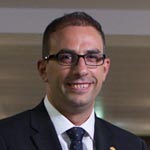
Started January 2002
The economics undergraduate arrived from Italy 14 years ago and worked as a kitchen porter to learn English. He went home to complete his degree, but after five months was back.
âI was 22 and young and I wanted to be in London. I had seen I could have a career here,â he explains.
He started full-time as a back of house supervisor, but food and beverage soon became his passion. The hotel trained him across all the F&B outlets and, in 2007, Giovanni became room service manager.
âI thought about leaving a while ago, because staff retention is good so there is not much scope to move up, but management worked with me to change my mind,â he admits (see main article).
The culture âI will fit this hotel in my heart forever. There is a strong family feeling here. When my father was ill in Italy, they allowed me extra time off. I appreciate the fact that they look out for you as a human being. I really feel I owe something to the hotel. It is difficult to leave.â
Work ethic âI feel I have a good relationship with Mrs Oei [the chair of Goodwood Group] when she visits.â
High point âLooking after the Singaporean prime minister and being presented with a medal and photo. We also had Michael Jackson here a few times and I chatted to film director Bernardo Bertolucci in Italian, and it turned out his brother lives in the next village to mine in Puglia. This hotel gives you those opportunities. It is professional, but there are no formalities.â

Started 1978 and left in 1990; rejoined in 1996
Evans worked as group co-ordinator under Rank before leaving in 1990 to work at Copthorne Gatwick and then Hyde Park Knightsbridge.She returned to be part of the reopening in 1996.
âIâve always liked it here. Itâs a great atmosphere and I love my job. Over the years I have developed my team and moved into sales. My assistant and I put together bespoke training courses for upselling, telephone skills and so on.â
The culture âI lived in staff accommodation for four orfive years and it was a godsend. Now, it helps me when recruiting staff. The owners realise that staff accommodation is a great asset and we recognise that they value us.â
Work ethic âWeâve built up relationships with the Rugby Union and cricket boards, and we all work hard to look after sports teams and bands. Elton Johnâs band take me out when theyâre here â" theyâre great guys, I got to know them through dealing with the agents and meeting them on arrival. I know which rooms regular guests like. You can get to know someone through their bookings.â
High point âI love it here because of the staff and regular guests. Staff marry and you watch their families grow up. The people here have created this family atmosphere and it draws them back.â
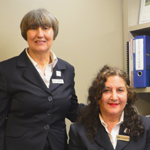
Started 1996
Newland oversaw the move from the plug system to an IP system as well as opening one of Londonâs first business centres in the hotel. McCourt started as a telephonist and 12 years ago she became Newlandâs assistant.
Their relationship was tested to the limit when teen idol Justin Bieber tweeted that he was staying at the hotel in 2012. The team had to field 20,000 calls and draft in extra staff to help.
âWe had girls asking if they could clean his toilet,â says Newland.
The staff accommodation still works well for Newland, who lives on the South coast and so uses it a couple of times a week.
âThe family feeling comes from the top. Mr Lowrey knows everybodyâs name and he likes people to be themselves,â she says.
McCourt adds: âWe give five-star service, but it is relaxed, not regimental, and standards are high. And guests love seeing the same faces when they return.â
Staff perks
Number of permanent staff 354
Long-serving staff Of those who joined in the hotelâs first year, 24 are still employed; 25% have more than 10 yearsâ service; and 47% have more than five yearsâ service.
The recruitment policy Most positions require previous experience.
Staff retention tools Training programmes; a wellbeing programme; charitable activities; promotion from within where possible; staff accommodation; a well-regarded staff canteen; social activities; reward and recognition schemes; appreciation parties; reasonable working hours; time off in lieu of overtime for non-management positions.
Â
Â

